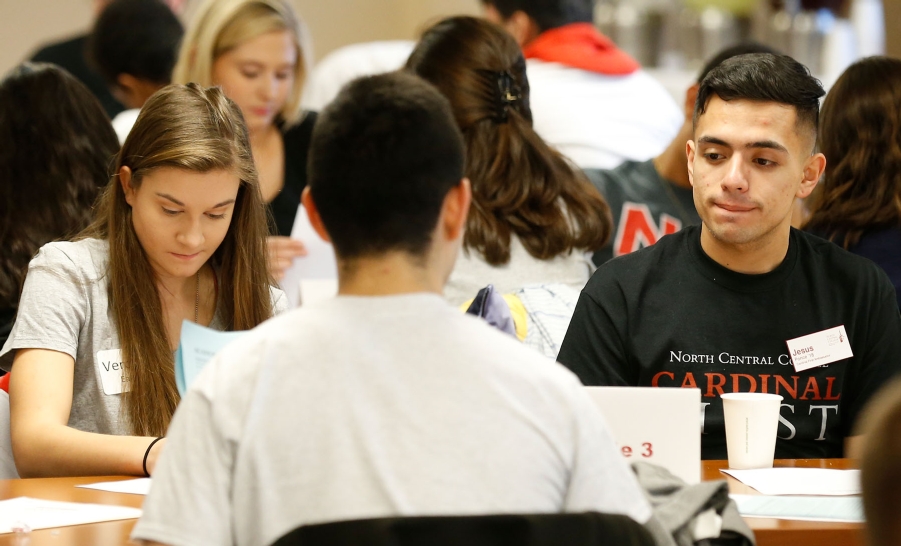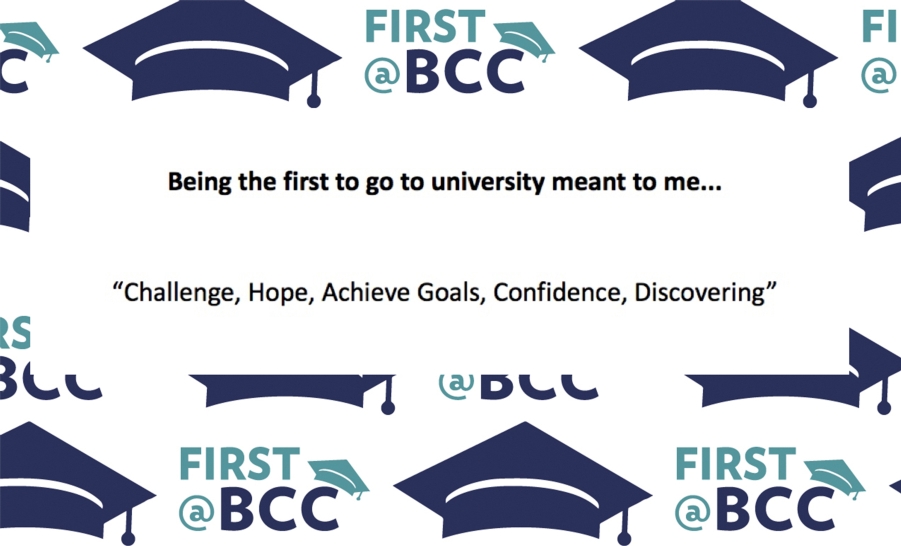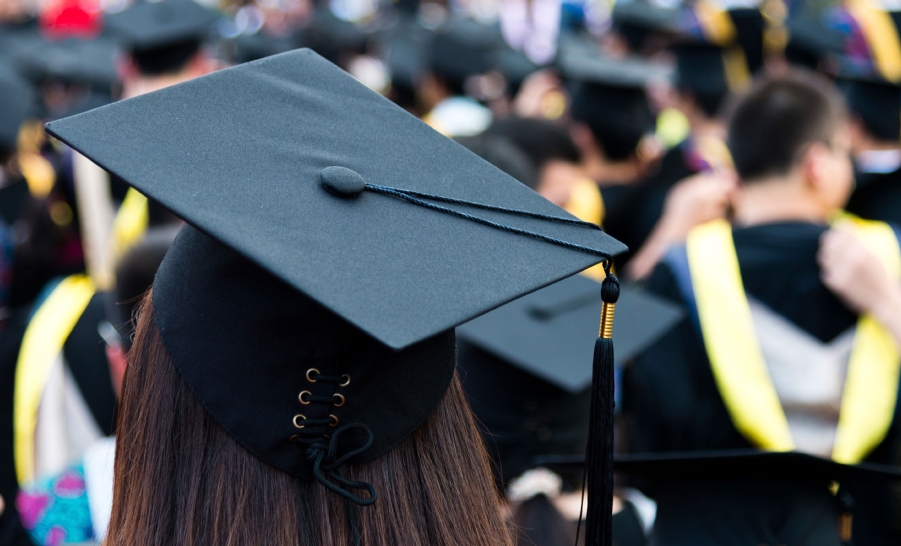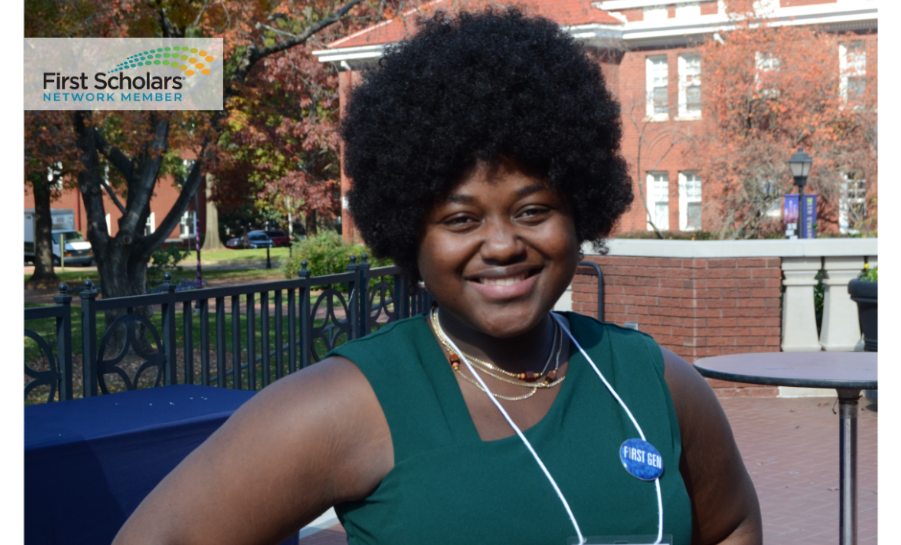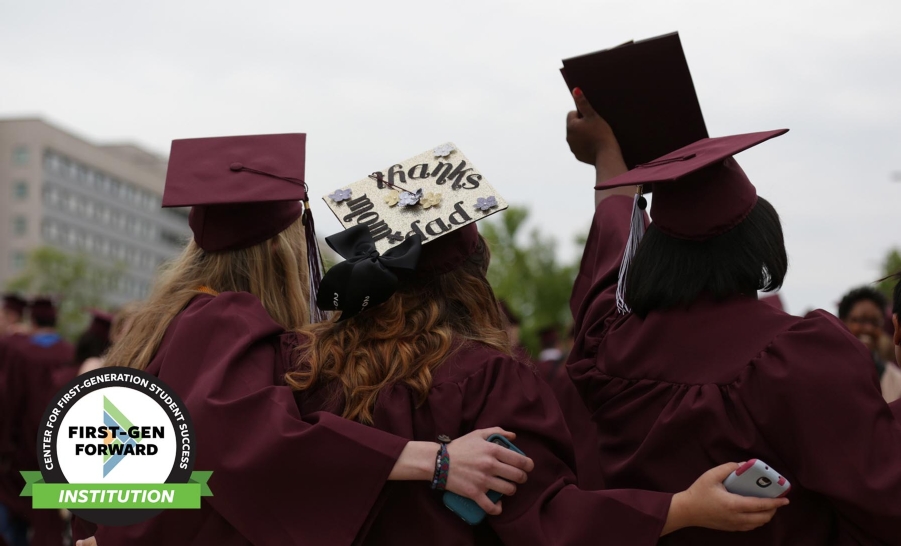Programs for First-generation Students at GW
Bridgette Behling M.Ed., University of Maryland / The Center / March 20, 2018
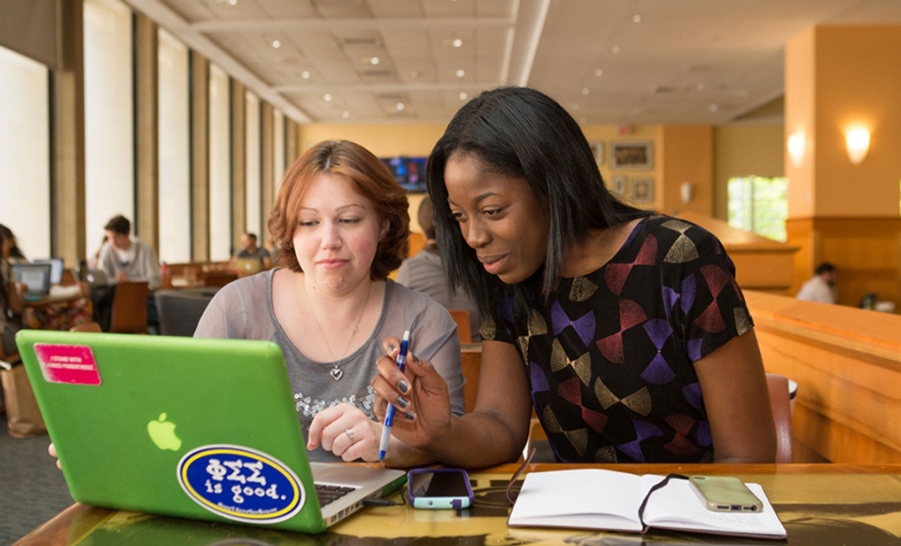
The Center for Student Engagement (CSE) at George Washington University (GW) is committed to transforming the student experience and empowering students through leadership, advising, and community building. After testing a few pilot programs to support first-generation students in the 2015-2016 year, staff in GW’s Center for Student Engagement launched a portfolio of programs for first-generation students in the 2016-2017 academic year. GW’s definition of first-generation students is aligned with the Common Application definition: an individual neither of whose parents completed a bachelor’s degree. Staff in the CSE support first-generation student success and believe there are simple measures that can be taken to provide this population with support that will positively impact their retention and make a difference in their student experience.
Program Philosophy
First-generation students bring a multitude of strengths and experiences to our community. Many have been in or are in a position where they serve as interpreters for their family, generate additional sources of income to support their family, or navigate elements of education and government systems for their families. They are resilient, intelligent, resourceful, hard-working, and creative.
First-generation programs in the Center for Student Engagement are designed from a strengths-based perspective. We partner with the talents, experiences, and strengths our students bring to help them achieve the best version of themselves. We are committed to supporting the holistic development and integration of first-generation students into the GW community by focusing on social support and skill development. Partially influenced by Tinto’s work on student retention, which posits that whether a student persists or drops out can be strongly predicted by their level of academic and social integration, CSE provides a sense of community, support in accessing resources, and collaboration with campus partners, to emphasize and participate in care for the whole student. Tinto’s model also notes the following aspects below that improve a student’s likelihood of persisting to graduation:
- If others around them expect them to succeed,
- If the student understands the path to successfully complete coursework,
- If support services are available and accessible,
- If the student feels valued,
- If the student feels comfortable in a higher education setting, and
- If the student has monetary assistance.
GW’s Center for Student Engagement first-generation student programs focus on helping students feel valued, become comfortable in a higher education setting, and provide messages of success. We connect first-generation students with staff and faculty at GW, and with resources that both help them understand the path to successfully complete coursework and reduce aspects of their financial burden. We regularly partner with other university offices in this work so first-generation students see support in multiple offices throughout GW.
Program Design and First Year Data Results
GW’s Center for Student Engagement offered the following programs to the first-generation community in the 2016-17 academic year:
- Founding Scholars
- First-Generation Connect
- First Friday Workshops and Dinners
- First-Generation Office Hours
- First-Generation Faculty/Staff Alliance
- First-Generation Equipment Bank
- AL1GN Conference Attendance Sponsorship
- End of the Year Celebration and Graduation Ceremony
- A high school visit with first-generation students from a DC high school, and
- Programs for upperclass students.
A full description of these programs can be found on the CSE website. As we look to the future, we continue to collect data on the impact of these programs, and adjust elements of our offerings to respond to the continually changing needs of today’s students.
Hear from Bridgette Behling, director of community support and leadership at George Washington University, share some insights from the 2018 Convening on First-generation Student Success:
